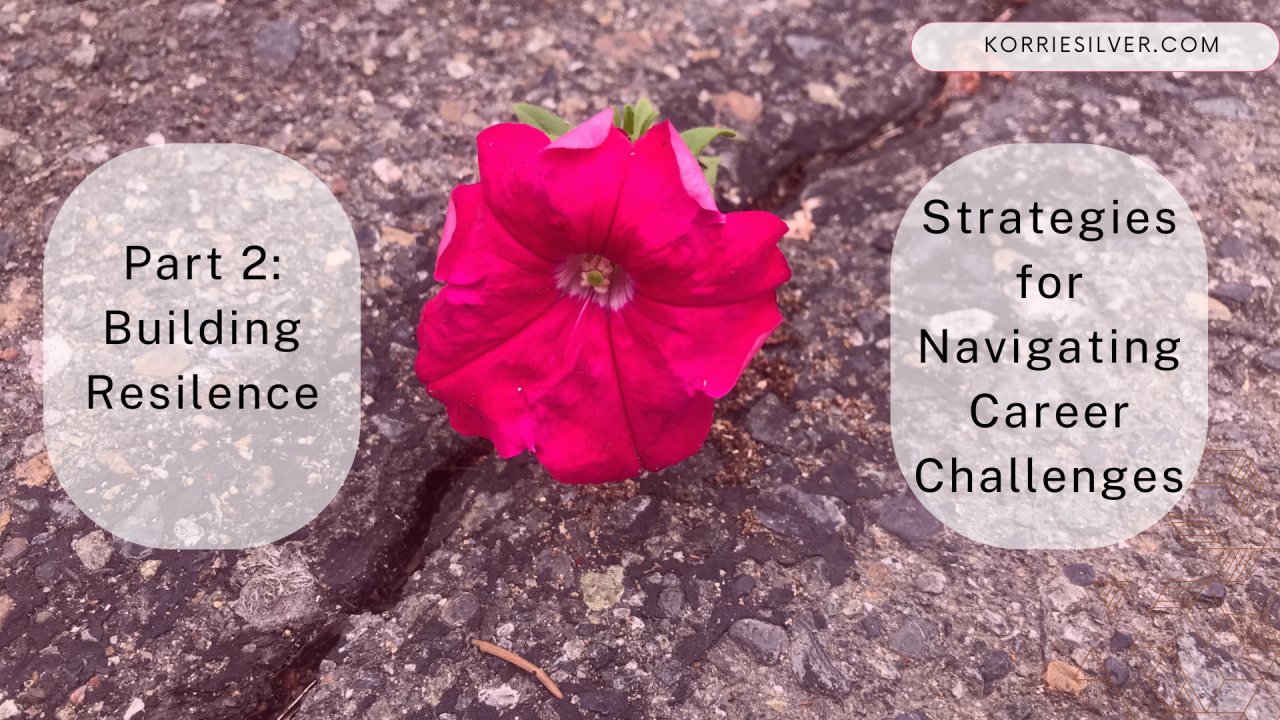Share your experiences or connect with me to discuss personalized approaches to enhancing resilience and navigating career challenges.

Introduction
Building on our previous discussion about cultivating a growth mindset, this week we shift our focus to resilience—an essential trait for navigating the complexities and challenges of today’s professional landscape. Resilience allows women to bounce back from setbacks, adapt to change, and maintain their commitment to personal and professional growth. Let’s explore actionable strategies for building resilience that can empower women to thrive in their careers.
Understanding Resilience
- Definition: Resilience is the ability to recover quickly from difficulties and adapt to challenging circumstances. It involves not only bouncing back from setbacks but also growing and improving as a result of those experiences.
- Importance: In the face of workplace challenges, developing resilience enables women to maintain focus on their goals, overcome obstacles, and embrace opportunities for growth.
The Benefits of Resilience for Women
- Enhanced Problem-Solving: Resilient women are better equipped to tackle challenges creatively, finding innovative solutions to complex problems.
- Improved Emotional Well-being: Building resilience can lead to better emotional health, reducing stress and anxiety while promoting a positive outlook.
- Greater Career Advancement: Women who demonstrate resilience are often viewed as strong leaders and are more likely to seize opportunities for advancement.
Strategies for Building Resilience
- Cultivate a Support Network: Surround yourself with supportive colleagues, friends, and mentors who uplift you during challenging times. A strong network can provide encouragement, advice, and perspective when you need it most.
- Practice Self-Care: Prioritizing self-care is essential for building resilience. Engaging in activities that promote physical, emotional, and mental well-being can help you recharge and maintain your strength.
- Embrace a Learning Mindset: View challenges and setbacks as opportunities for learning and growth. Instead of focusing on failures, reflect on what you can learn from each experience and how it can inform your future actions.
- Set Realistic Goals: Establishing achievable goals helps create a sense of purpose and direction. Break larger goals into smaller, manageable tasks to make them less overwhelming.
- Practice Positive Self-Talk: How you speak to yourself matters. Challenge negative thoughts and replace them with positive affirmations that reinforce your resilience and capability.
Success Stories: Women Who Exemplify Resilience
- Oprah Winfrey: Oprah’s journey from a challenging upbringing to becoming a media mogul is a testament to resilience. She faced numerous obstacles but consistently used her experiences as fuel for growth and empowerment.
- Arianna Huffington: After experiencing burnout, Arianna Huffington founded Thrive Global to advocate for wellness and resilience in the workplace. Her story highlights the importance of prioritizing well-being and adapting to challenges with a focus on personal growth.
- Lisa Bevere: As mentioned previously, Lisa Bevere has navigated various challenges in her career while remaining committed to her mission. Her resilience and ability to learn from setbacks have propelled her to become a leading voice in women’s empowerment and faith-based leadership.
Conclusion
Building resilience is a vital skill for women navigating their careers. By cultivating a supportive network, practicing self-care, embracing a learning mindset, setting realistic goals, and fostering positive self-talk, women can strengthen their resilience and thrive in the face of challenges.

